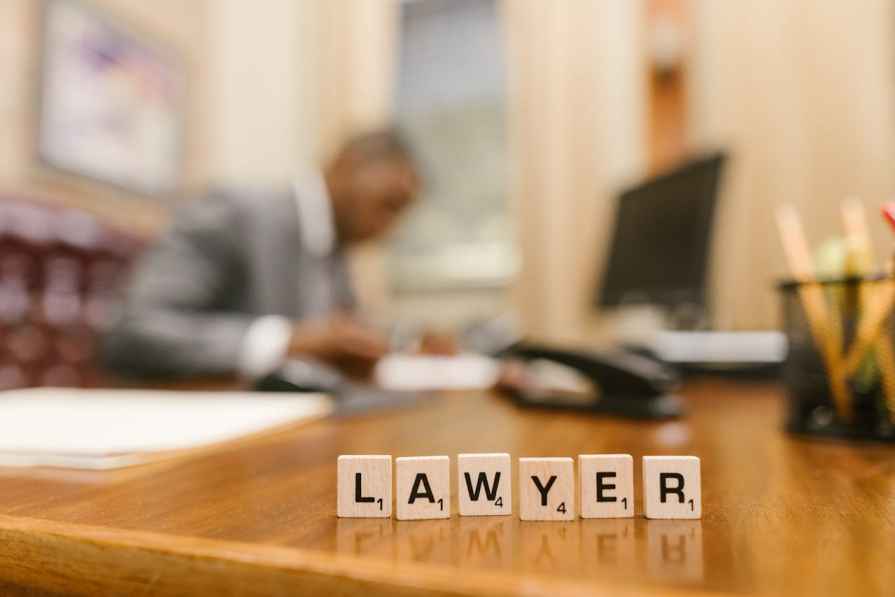
Table of Contents
Introduction
Legal problems can be confusing, but getting good advice can help. This guide will show you when to get help and how to handle the legal process. It provides useful tips to help you make smart choices. The article will explain important parts of legal advice so you know how to handle legal issues well.
You can also read about – Personal Injury Cases – Understanding the Process
You can also read our latest post
Knowing When to Get Legal Help
Sometimes, you need a lawyer. Here’s when to ask for help:
Contracts and Agreements
Contracts are deals that must be followed by law. They can be about business, buying property, or jobs. If you’re about to sign one, a lawyer can:
- Find Problems: Spot any issues that could hurt you.
- Check Fairness: Make sure the deal is fair for you.
- Explain Words: Break down difficult legal words into simple terms.
- For example, if you’re signing a lease for a new apartment, a lawyer can check it to ensure there are no unfair terms about rent or maintenance.
Legal Disputes
Disagreements, like with neighbours or businesses, can get complicated. A lawyer can help you:
- Know Your Rights: Explain what you can do and your rights.
- Check Your Case: See if your case is strong or weak.
- Plan Your Approach: Decide how to solve the problem by talking it out or going to court.
- For instance, a lawyer can help you understand the laws and find a fair solution if you’re having a dispute about property lines with your neighbour.
Criminal Charges
If you’re charged with a crime, even a small one, it can have serious effects. A lawyer can: https://noticviralweb.blogspot.com/2024/04/consejos-de-un-abogado.html
- Protect Your Rights: Make sure your rights are respected.
- Defend You: Create a plan to fight the charges.
- Negotiate Deals: Try to get a better outcome, like fewer charges or a lighter punishment.
- For example, if you’re charged with a DUI, a lawyer can help you through the legal process and try to reduce the impact on your life.
Family Issues
Family problems, like divorce or child custody, can be very emotional. A family lawyer can:
- Guide You: Help you understand what steps to take.
- Protect Your Interests: Ensure your and your children’s rights are safe.
- Negotiate Deals: Help you agree on child support, alimony, and custody.
- For example, a lawyer can help you divide property fairly during a divorce and ensure child custody arrangements are good for your children.
Choosing the Right Lawyer
Choosing the right lawyer is important for good legal help. Here’s how to pick the right one:
Specialization
Law has many types. When picking a lawyer, think about: https://noticviralweb.blogspot.com/2024/04/consejos-de-un-abogado.html
- Type of Law: Make sure the lawyer handles your case type. For example, a personal injury lawyer is different from a criminal lawyer.
- Experience: Choose a lawyer who has worked on cases like yours before. For example, if you have a business problem, pick a lawyer who deals with business law, not family law.
Experience
An experienced lawyer knows a lot and can help you better:
- Success Rate: Look for a lawyer who has won cases similar to yours.
- Years of Practice: A lawyer with more experience usually understands the law better. For example, a lawyer who has handled many complex cases will be more skilled than someone new.
Reputation
A lawyer’s reputation shows how good they are:
- Reviews: Check online reviews from past clients.
- Referrals: Ask friends or family who have had good experiences with a lawyer.
Compatibility
You should feel comfortable with your lawyer: https://noticviralweb.blogspot.com/2024/04/consejos-de-un-abogado.html
- Communication: Make sure the lawyer explains things clearly and listens to you.
- Availability: The lawyer should be easy to reach and keep you updated.
- For example, if you like regular updates and clear explanations, find a lawyer to provide those.
Understanding Legal Advice
Knowing your legal advice well is important for making good decisions. Here’s how to make sure you understand it:
Ask Questions
If something isn’t clear, ask your lawyer to explain:
- Explain Terms: If legal words or terms are confusing, ask for an easy-to-understand explanation.
- Advice Impact: Ask how the advice affects your case and what steps you should take.
- For example, if your lawyer talks about a term like “statute of limitations,” ask what it means and how it affects your case.
Clarify Your Goals
Make sure you and your lawyer are on the same page:
- Discuss Goals: Tell your lawyer what you want and expect.
- Understand Options: Ask about different choices and how they fit your goals.
- For instance, if you want to settle a dispute quickly, ensure your lawyer knows this and plans to achieve that fast resolution.
Follow Up
If you still have questions or need more details, check back with your lawyer:
- Seek Updates: Ask for updates on your case and any plan changes.
- Request More Info: If new questions arise, ask for more information.
- For example, if your lawyer updates you on your case but you have more questions, follow up to get all the necessary details.
Getting Ready for Your Legal Meeting
To make your legal meeting go smoothly: https://noticviralweb.blogspot.com/2024/04/consejos-de-un-abogado.html
Gather Documents
Bring all important papers related to your case:
- Contracts and Agreements: Any contracts or agreements that matter to your case.
- Correspondence: Letters, emails, or other messages about the issue.
- Records and Evidence: Proofs like photos or records that help your case.
- For example, if you’re having trouble with a contract, bring a copy of the contract and any related messages.
Prepare Questions
Write down any questions or worries you have before the meeting:
- Legal Questions: Questions about the legal side of your case.
- Process Questions: Ask about the steps to solve your case and what to expect.
- For instance, you might ask how long your case will take, what the possible outcomes will be, and what it will cost.
Outline Your Case
Be ready to give a clear summary of your situation:
- Chronology of Events: List the main events leading up to your legal issue.
- Relevant Details: Share important details, such as key dates and interactions.
- For example, if you dispute property boundaries, provide a timeline of events and any messages with the other party.
What to Expect During Legal Proceedings
Initial Consultation
At the first meeting with your lawyer, they will:
- Gather Information: They’ll ask you questions to understand your case better.
- Explain the Process: They’ll outline the legal process and what you can expect. For example, if you’re dealing with a lawsuit, they’ll explain the steps from filing the complaint to going to trial.
Case Assessment
The lawyer will:
- Evaluate Strengths and Weaknesses: They’ll squint at what’s strong and weak and almost your specimen based on what you’ve shared.
- Discuss Possible Outcomes: They’ll talk well about what might happen and how to get a weightier result. For example, if you’re trying to settle, they’ll assess your specimen and the endangerment of getting a good outcome.
Legal Strategy
After assessing your case, the lawyer will suggest a plan:
- Negotiation: They might recommend settling or solving the issue outside of court.
- Litigation: They will prepare to take your specimen to the magistrate and represent you during the trial if needed. For example, if you’re in a merchant dispute, they might suggest settling to stave a long magistrate process.
Ongoing Communication
Keep in touch with your lawyer:
- Request Updates: Ask about any news or changes in your case.
- Provide Information: Give any extra details or documents they ask for. For example, if new evidence comes up, give it to your lawyer quickly to include it in your case.
The Importance of Documentation
Evidence
Documents are important because they provide proof for your case:
- Contracts: Show what both sides agreed to.
- Correspondence: Emails and letters show what was communicated and intended.
- Records: Financial records, photos, and other documents back up your case.
- For example, medical records and accident reports are key proof in a personal injury case.
Accuracy
Keeping accurate records helps avoid problems:
- Document Details: Make sure everything is correct and current.
- Organize Documents: Keep them sorted so you can find them easily.
- For example, accurate records of financial transactions and property are important for fair division during a divorce.
Legal Requirements
Some legal processes need specific documents:
- Filing Requirements: You submit all needed documents to the court or authorities.
- Compliance: Follow all rules for documentation to avoid delays or issues.
- For example, in a civil lawsuit, you may need to submit certain forms and evidence to the court by specific dates.
Handling Legal Fees
Understanding legal fees helps you manage your budget:
Fee Structures
Lawyers may tuition in variegated ways:
- Hourly Rates: You pay for the time the lawyer works on your case.
- Flat Fees: A stock-still value for specific services.
- Contingency Fees: A percentage of the money awarded worldwide in personal injury cases.
- For example, if you rent a lawyer by the hour, you’ll be billed for each hour they work.
Discuss Costs
Before hiring a lawyer, talk well-nigh their fees:
- Clarify Charges: Ask well-nigh the forfeit of services and any uneaten fees.
- Understand Billing: Know how you will be billed and the payment terms.
- For instance, if your lawyer works on a contingency fee basis, ask what percentage they will take from the settlement and if there are any uneaten costs.
Payment Plans
Some lawyers offer payment plans:
- Installments: You can pay in parts instead of all at once.
- Flexible Terms: Ask for flexible payment options if you have financial concerns.
- For example, if you can’t pay the full fee upfront, ask if you can set up a payment plan that fits your budget.
Resolving Disputes
Dispute resolution methods can be simpler than going to court: https://noticviralweb.blogspot.com/2024/04/consejos-de-un-abogado.html
Mediation
In mediation, a neutral person helps both sides agree:
- Facilitator Role: The mediator guides the discussion and helps both parties find a solution.
- Less Formal: Mediation is usually less formal and increasingly flexible than a magistrate trial.
- Example: If you and a merchant partner disagree, mediation can help you resolve it without going to court.
Arbitration
In arbitration, an outsider makes the final decision:
- Arbitrator’s Role: The arbitrator looks at the relic and decides.
- More Formal: Mediation is increasingly formal than mediation but can be quicker than a magistrate trial.
- Example: If a contract has a problem, mediation can be a faster way to resolve it than a full magistrate trial.
Settlement
Negotiating a settlement ways, both sides stipulate terms without going to trial:
- Mutual Agreement: Both parties stipulate to terms without a trial.
- Legal Assistance: A lawyer can help negotiate and write up the settlement.
- Example: If you’re in a legal dispute, negotiating a settlement can save time and money compared to a trial.
Knowing Your Rights
Right to a Fair Trial
- Unbiased Judge or Jury: Your case should be heard by a fair judge or jury.
- Chance to Present Your Case: You can show evidence and make your arguments.
- Example: In a criminal case, you have the right to a trial by a pearly jury.
Right to Remain Silent
- Avoid Self-Incrimination: You don’t have to wordplay questions that might make you squint guilty.
- Legal Advice: You can talk to a lawyer, which is better than talking to the police.
- Example: If you are arrested, you can stay silent until you have a lawyer.
Right to Legal Representation
- Access to a Lawyer: You can rent a lawyer to help you.
- Legal Aid: If you can’t hire a lawyer, you might get self-ruling legal help.
- Example: If you squatter legal trouble but can’t pay for a lawyer, you can wield legal aid.

Understanding the Legal System
Court Levels
- Trial Courts: These courts deal with the first trial and examine the evidence.
- Appellate Courts: These courts check if the trial courts made a mistake.
- For example, if you don’t like a trial court’s decision, you can ask a higher court to review it.
Legal Procedures
- Filing Documents: Make sure to submit documents on time.
- Court Hearings: Attend your court meetings and follow orders.
- For example, if you’re in a lawsuit, you must meet deadlines for documents and court meetings.
Legal Terms
- Terminology: Learn basic legal words like “plaintiff” (the person suing) and “defendant” (the person being sued).
- Knowing these terms helps you understand your legal case better.
Why Trust Matters
Confidentiality
Trust is important with your lawyer because:
- Privacy: What you tell them stays private.
- Legal Rules: They must keep your info secret.
- For example, your lawyer has to keep your private details hidden.
Honesty
You can trust your lawyer to be honest:
- Clear Advice: They give you honest and clear advice.
- Open Talk: They tell you what might happen and how they’ll handle things.
- For example, if your lawyer tells you the truth about your case, it helps you decide what to do.
Professionalism
A good lawyer is professional: https://noticviralweb.blogspot.com/2024/04/consejos-de-un-abogado.html
- Hard Work: They work to get the best results for you.
- Good Behavior: They follow the right rules.
- For example, a professional lawyer makes sure you get good help.
Stay Updated
It’s important to keep up with your case and the legal process: https://noticviralweb.blogspot.com/2024/04/consejos-de-un-abogado.html
Regular Updates
Ask your lawyer to keep you informed:
- Case Progress: Check how your case is going and if there are any new updates.
- Important Changes: Know if there are any changes in how your case is handled.
- For example, if your case moves to a new stage, your lawyer should tell you what’s changed and what it means.
Understand the Process
Learn about how the legal process works:
- Procedural Steps: Know the steps in your case and what to expect.
- Your Role: Know what actions you need to take.
- For instance, knowing the steps helps you prepare and take part if you’re involved in a legal issue.
Educate Yourself
Understand the laws that apply to your situation: https://noticviralweb.blogspot.com/2024/04/consejos-de-un-abogado.html
- Legal Research: Read up on laws and legal ideas that affect your case.
- Resources: Use good sources to understand better.
- For example, learning about contract law helps you know your rights and options if you’re dealing with a contract issue.
Conclusion -https://noticviralweb.blogspot.com/2024/04/consejos-de-un-abogado.html
Dealing with legal issues can be tough, but you can manage them better with good translation and planning. Knowing when to get legal help, picking the right lawyer, understanding their advice, and staying informed will help make the legal process easier and help you get a weightier result.
Remember, legal translating is useful for handling legal problems. By pursuing these tips and working closely with your lawyer, you can deal with legal matters confidently and make sure your rights and interests are safe. https://noticviralweb.blogspot.com/2024/04/consejos-de-un-abogado.html
FAQs -https://noticviralweb.blogspot.com/2024/04/consejos-de-un-abogado.html
What is legal advice?
Legal translating is when a lawyer helps you understand the law and what you can do about your problem.
When should I seek legal advice?
You should get a legal translation, surpassing signing any contract, if you have a legal issue, if you’re accused of a crime or for family problems like divorce. For more go to https://noticviralweb.blogspot.com/2024/04/consejos-de-un-abogado.html
How do I segregate the right lawyer?
Pick a lawyer who knows well-nigh your issue, has done similar work before, is well-reviewed, and communicates well with you. For more go to https://noticviralweb.blogspot.com/2024/04/consejos-de-un-abogado.html
What happens in an initial legal consultation?
In the first meeting, the lawyer will learn about your case, explain the process, and discuss how to handle it. For more go to https://noticviralweb.blogspot.com/2024/04/consejos-de-un-abogado.html
How can I understand the legal translation I get?
Ask questions if you don’t understand something, make sure the translating helps you reach your goals, and alimony in touch with your lawyer. For more go to https://noticviralweb.blogspot.com/2024/04/consejos-de-un-abogado.html
What types of fees do lawyers charge?
Lawyers might pay tuition by the hour, a stock-still value for unrepealable work, or a percentage of any money you win. For more go to https://noticviralweb.blogspot.com/2024/04/consejos-de-un-abogado.html
Can I negotiate legal fees?
Yes, you can discuss almost all fees with your lawyer, surpassing hiring them. Some may offer flexible payment options. For more go to https://noticviralweb.blogspot.com/2024/04/consejos-de-un-abogado.html
What is the role of documentation in legal matters?
Documents are important, considering they provide proof and help show your case. Alimony has good records. For more go to https://noticviralweb.blogspot.com/2024/04/consejos-de-un-abogado.html
How can I prepare for a legal consultation?
Gather important documents, list your questions, and outline your case. For more go to https://noticviralweb.blogspot.com/2024/04/consejos-de-un-abogado.html
What steps should I take if I don’t agree with what my lawyer is advising?
Talk to your lawyer to discover your concerns, consider getting a second opinion, and ensure you understand the advice. For more go to https://noticviralweb.blogspot.com/2024/04/consejos-de-un-abogado.html
What is the difference between mediation and arbitration?
Mediation is when a neutral person helps both sides agree. Mediation is when a third person makes a visualization that both sides must follow. For more go to https://noticviralweb.blogspot.com/2024/04/consejos-de-un-abogado.html
How can I stay informed about my legal case?
Ask your lawyer for updates, learn to understand the legal process, and alimony yourself to inform you of your case. https://noticviralweb.blogspot.com/2024/04/consejos-de-un-abogado.html
What should I do if I cannot sire a lawyer?
Look for self-ruling legal help or ask if the lawyer offers payment plans. https://noticviralweb.blogspot.com/2024/04/consejos-de-un-abogado.html
How does confidentiality work in the lawyer-client relationship?
Confidentiality is the way your lawyer keeps what you tell them private and secret. https://noticviralweb.blogspot.com/2024/04/consejos-de-un-abogado.html
What are my rights during legal proceedings?
You have the right to a pearly trial, to stay silent if needed, and to have a lawyer help you. https://noticviralweb.blogspot.com/2024/04/consejos-de-un-abogado.html


